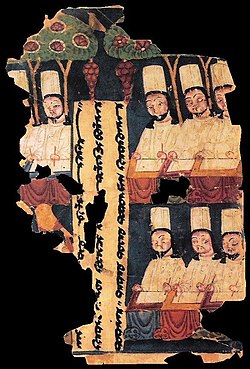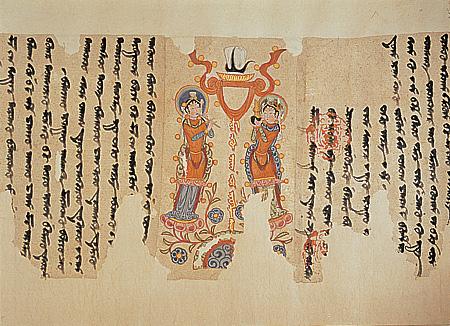I am not a professional scholar. I don't even play one on TV. But for some strange reason I spend a lot of time thinking about a foreign religion like Christianity. Perhaps it has something to do with liking forbidden fruit. Who knows.
Whatever the case may be, I went to university and enjoyed learning, but despised graduate school. Yes they have a lot of knowledge from books and I certainly think that is important. But for me the bottom line was always how can a bookworm pass judgement on what is possible in life without having lived?
Maybe it was the 'mind expansion' when I was in my teens. I woke up in life at twenty and realized - this will be my life. The Nietzschean myth of eternal return. Is this the life that I want to live for the rest of eternity over and over again? Seriously. Did I want to live my life and make it some glorious castle in the sand that I would admire every repetition of this life or study the lives of other people as some sort of shadow or willow wisp on the rocky shores of existence?
In any event, it wasn't for me.
Of course there are great disadvantages to living in the intellectual wilderness. Soon you even lose the appearance of civility. It is always dangerous to be the unaccredited scholar criticizing or even disparaging those who 'went all the way.' You start to feel like President Obama at the debate. You can't be the angry black man and win over white voters. In the same way the amateur scholar always needs show deference to the limited imagination of the spiritual eunuch.
So here's what I think about earliest Christianity. Something happened on a Passover at the beginning of the Common Era. An event, a death, a crucifixion. This was a real historical 'occurrence' in the same way that a great film is inspired by 'real events.' There was even a gospel associated with Peter that was laid down in the earlier years. Yet our gospel tradition is based on a second gospel - a neo-Platonic reinterpretation of those events that was especially influential at Alexandria.
It is now impossible to separate history from allegory, event from symbol. Matthew and Luke might have attempted to do that. The editor of our canonical text of the Gospel According to Mark certainly tried. Our surviving religion is a conscious attempt at redefining that wholly spiritual exegesis of an allegorical reinterpretation of a historical event in the simplest terms possible. That's why the early Catholic gospels were called 'simple' in the original Semitic cultural homeland of the tradition
I say - let's go with Mark's neo-Platonic reinterpretation. Let's try and figure it out what it must have been about. Everyone else has sought to uncover the historical Jesus and failed. Let's try a different approach.
skip to main |
skip to sidebar












Drawing on vellum. From MS CLXV, Biblioteca Capitolare, Vercelli, a compendium of canon law produced in Northern Italy ca. 825













































Burning of Arian Books After Nicaea

Drawing on vellum. From MS CLXV, Biblioteca Capitolare, Vercelli, a compendium of canon law produced in Northern Italy ca. 825


Adversus Marcionem 1.19 and Antoninus Pius's Alexandrian "Zodiac Coins" of 144/145 CE















First Argument for the Alexandrian Origins of Marcion

Second Argument for the Alexandrian Origins of Marcion

Third Argument for the Alexandrian Origins of Marcion

Fourth Argument for the Alexandrian Origins of Marcion

Fifth Argument for the Alexandrian Origins of Marcion

Conclusion

Bonus

First Piece of Evidence

Second Piece of Evidence


Third Piece of Evidence

Preliminary Conclusion

Overriding Point

Bottom Line


In Summa:

Last Word

My Academic Papers
- • Book Draft - work in progress
- • Google Docs
- • Admin -->












